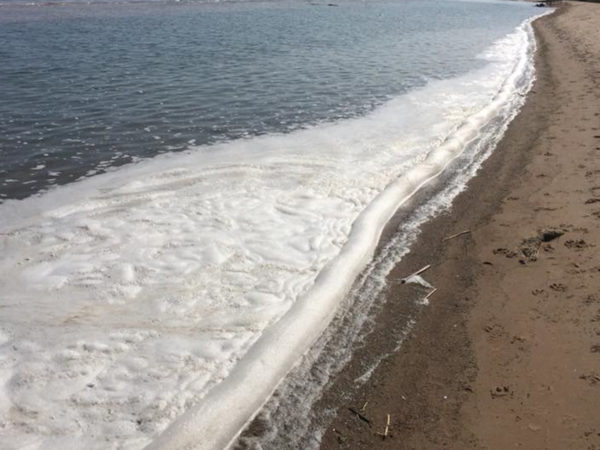
Sandy Wynn-Stelt, a resident of Belmont, Michigan, known for her fight against Wolverine World Wide and PFAS, earned the 2020 Citizen Excellence in Community Involvement Award from the U.S. EPA.
Wynn-Stelt is featured in Great Lakes Now’s documentary, “The Forever Chemicals,” which brought audiences the story of her journey as she discovered the extent of the PFAS contamination in her private well and in her community.
“It’s as serious as a heart attack, it truly is. It killed my husband. It took away my property values,” Wynn-Stelt said in the Great Lakes Now program. “I have absolutely nothing left, it’s taken everything from me.”
In 2016, her husband died of liver cancer, and the following year Wynn-Stelt learned that her well water tested among the highest in the nation for PFAS contamination. Exposure to PFAS is linked to pregnancy troubles, cancer, liver damage, thyroid issues and more.
Watch Great Lakes Now‘s “The Forever Chemicals” here:
API key not valid. Please pass a valid API key.The Citizen Excellence in Community Involvement Award is given once a year to a community group or individual that worked with an EPA Superfund team during the site cleanup process.
“Awards like this show that citizens have the ability to work with government agencies and get things done,” Wynn-Stelt said in an interview with News 8.
According to the EPA, it was Wynn-Stelt’s involvement with cleanup of the Wolverine World Wide Tannery Superfund site in Kent County that garnered her the award. Wynn-Stelt hosted weekly neighborhood meetings, served as a liaison between residents and the EPA and Michigan Department of Environment, Great Lakes, and Energy, played a key role in forming the local Community Advisory Group and more, all of which contributed to the EPA recognizing her role.
Here is a Great Lakes Now video with more about Wynn-Stelt and her neighbors:
API key not valid. Please pass a valid API key.Wynn-Stelt also testified about PFAS and its impact in front of Congress in late July.
PFAS, short for per- and polyfluoroalkyl substances, are a group of widespread man-made chemicals that don’t break down in the environment or the human body and have been flagged as a major contaminant in sources of water across the country.
In August, Michigan established new statewide PFAS maximum contaminant levels that are currently among the most comprehensive and strict standards in the country in limiting the amount of PFAS in drinking water.
Catch up with other PFAS headlines and news from Great Lakes Now:
Indiana universities receive grants to study PFAS impact on water quality
PFAS News Roundup: PFAS in fast food packaging, every Madison well
Coping with PFAS: How have families been dealing with PFAS contamination in their communities
PFAS Progress: Michigan continues legislative push for more action against PFAS




